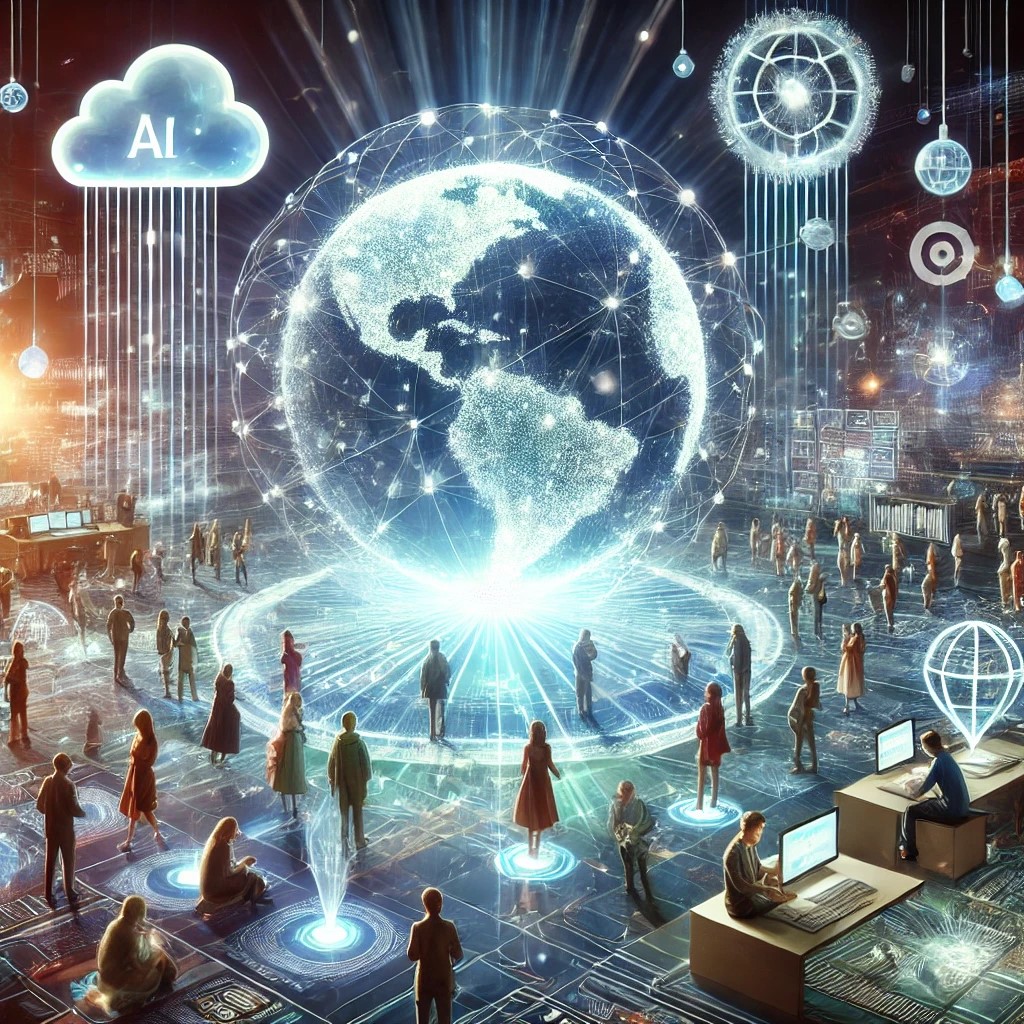by Elias Varen
Introduction
The rise of artificial intelligence has ushered in an era where information is more accessible than ever before. AI-driven platforms can generate, curate, and distribute knowledge on a massive scale, effectively breaking down traditional barriers to information. This phenomenon—often hailed as the democratization of knowledge—has the potential to reshape industries, empower individuals, and create more equitable access to learning and decision-making resources.
However, this democratization of information is in direct conflict with the core principles of capitalism. Capitalism, by its nature, thrives on scarcity, exclusivity, and the commodification of goods and services. When AI enables the free dissemination of valuable information—whether in the form of financial analysis, medical knowledge, or creative content—it disrupts the economic models that rely on knowledge as a proprietary asset. This paradox raises fundamental questions about the sustainability of capitalist structures in an AI-driven world.
Capitalism and the Value of Scarcity
A foundational principle of capitalism is that value is derived from scarcity. Resources, products, and services command a price based on their relative availability and demand. Intellectual property, proprietary research, and expert knowledge have traditionally been valuable precisely because they are difficult to access without paying for them.
AI disrupts this model by making high-quality information freely available. Consider how AI-powered platforms provide financial insights once limited to Wall Street analysts or how generative AI can produce legal documents without the need for expensive attorneys. In this scenario, businesses that once profited from controlling access to information find themselves at odds with a system that thrives on abundance rather than scarcity.
AI and the Collapse of Gatekeeping Industries
Several industries have built their business models on the premise that knowledge is a controlled resource. The publishing, legal, medical, and educational sectors have long been structured around gatekeeping mechanisms that regulate who can access high-value information. AI challenges these industries by automating the curation, synthesis, and distribution of knowledge.
For example:
- Publishing & Journalism: News agencies once relied on subscription models and advertising revenue, but AI-driven content aggregation and generative news-writing tools undermine traditional journalism.
- Higher Education: Universities justify their tuition costs by offering access to exclusive knowledge. However, AI-powered tutoring and free online courses erode the perceived necessity of expensive degrees.
- Healthcare & Legal Services: AI-driven diagnostics and legal research platforms provide services that were once the domain of highly-paid professionals, making expertise more widely accessible and reducing the exclusivity of these professions.
The Profitability Problem: Who Owns AI-Generated Knowledge?
Despite AI’s ability to democratize information, powerful tech corporations still seek to control the technology itself. Large-scale AI models require enormous computational resources and data access, which means that while information itself is becoming more freely available, the infrastructure behind AI remains in the hands of a few companies.
This creates a paradox: AI can disrupt traditional business models by democratizing access to knowledge, but the very AI systems enabling this transformation remain locked behind paywalls, corporate patents, and proprietary datasets. Tech giants like OpenAI, Google, and Microsoft profit by charging for premium AI services while simultaneously fueling the erosion of knowledge-based industries.
In a sense, capitalism is adapting—not by restricting AI’s spread, but by ensuring that the tools required to harness AI remain expensive and difficult to replicate. This raises ethical questions about whether true democratization of information is possible under a capitalist framework.
Potential Futures: Adaptation or Resistance?
As AI continues to challenge existing capitalist structures, society faces several possible outcomes:
- New Economic Models – Capitalism may evolve into a model that prioritizes universal access to knowledge while monetizing complementary services, such as personalized AI consultations, creative collaboration, or data-driven applications.
- Increased Regulation and Intellectual Property Battles – Governments and corporations may attempt to restrict AI’s ability to freely generate and distribute knowledge, reinforcing gatekeeping mechanisms through aggressive copyright laws and AI usage limitations.
- A Post-Capitalist Knowledge Economy – If AI-driven abundance makes knowledge-based industries obsolete, a new economic paradigm might emerge—one where value is no longer tied to information scarcity but rather to human creativity, problem-solving, and ethical AI governance.
Conclusion
The democratization of information through AI represents both an opportunity and a threat to capitalism as we know it. While AI makes knowledge more widely accessible, it simultaneously undermines industries that depend on information scarcity for profit. The question remains: Will capitalism adapt to this new reality, or will it resist, reinforcing barriers to AI-driven knowledge distribution? The future of AI and capitalism will likely be shaped by a delicate balance—one that determines whether AI remains a tool for genuine empowerment or simply a new frontier for corporate control.
